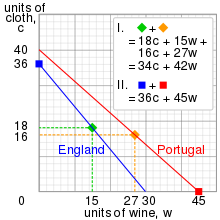 My wife studies pagan mythology, among other pursuits, and she recently undertook some of the Norse background in a far deeper way than my own shallow assemblage of role-playing references, fictional mentions, and Marvel movies. She happened to mention the other day that Christian chroniclers like Snorri Sturluson likely adapted the pre-existing mythos in order to achieve a syncretic outcome. Loki was demonized to create a dualist conflict. Ragnarök may have been created out of whole, fresh cloth in order to extinguish the pantheon and make way for the new religion.
My wife studies pagan mythology, among other pursuits, and she recently undertook some of the Norse background in a far deeper way than my own shallow assemblage of role-playing references, fictional mentions, and Marvel movies. She happened to mention the other day that Christian chroniclers like Snorri Sturluson likely adapted the pre-existing mythos in order to achieve a syncretic outcome. Loki was demonized to create a dualist conflict. Ragnarök may have been created out of whole, fresh cloth in order to extinguish the pantheon and make way for the new religion.
John McKinnell studies the narratives that the Norse proselytizers used to achieve the conversion of the pagans, as well as the influence and outcomes of those people. There is a theological problem for them in terms of explaining the existence of the pagan deities that is largely solved by simply describing them as devils or as personifications of natural phenomena. They transmogrify from real to a netherworld nestled somewhere between mythic, poetic, and literal evils.
I had nearly simultaneously joined the Bart Ehrman Blog because of a post that got repeated in one of his podcasts I happened to catch. The post is from a guest contributor who uses scholarship from Mark Smith and others to detail a model of the transformation into monotheism from earlier Canaanite pantheons. In this model, during the Second Temple Period, the success of the god Marduk’s people over Yahweh’s tribes requires a theological reinterpretation in order to explain Yahweh’s defeat. How can YHWH be the greatest god under such circumstances? The answer is easy, though. Marduk is just a puppet of YHWH and the literal military victory is a divine punishment. YHWH remains supreme.… Read the rest
